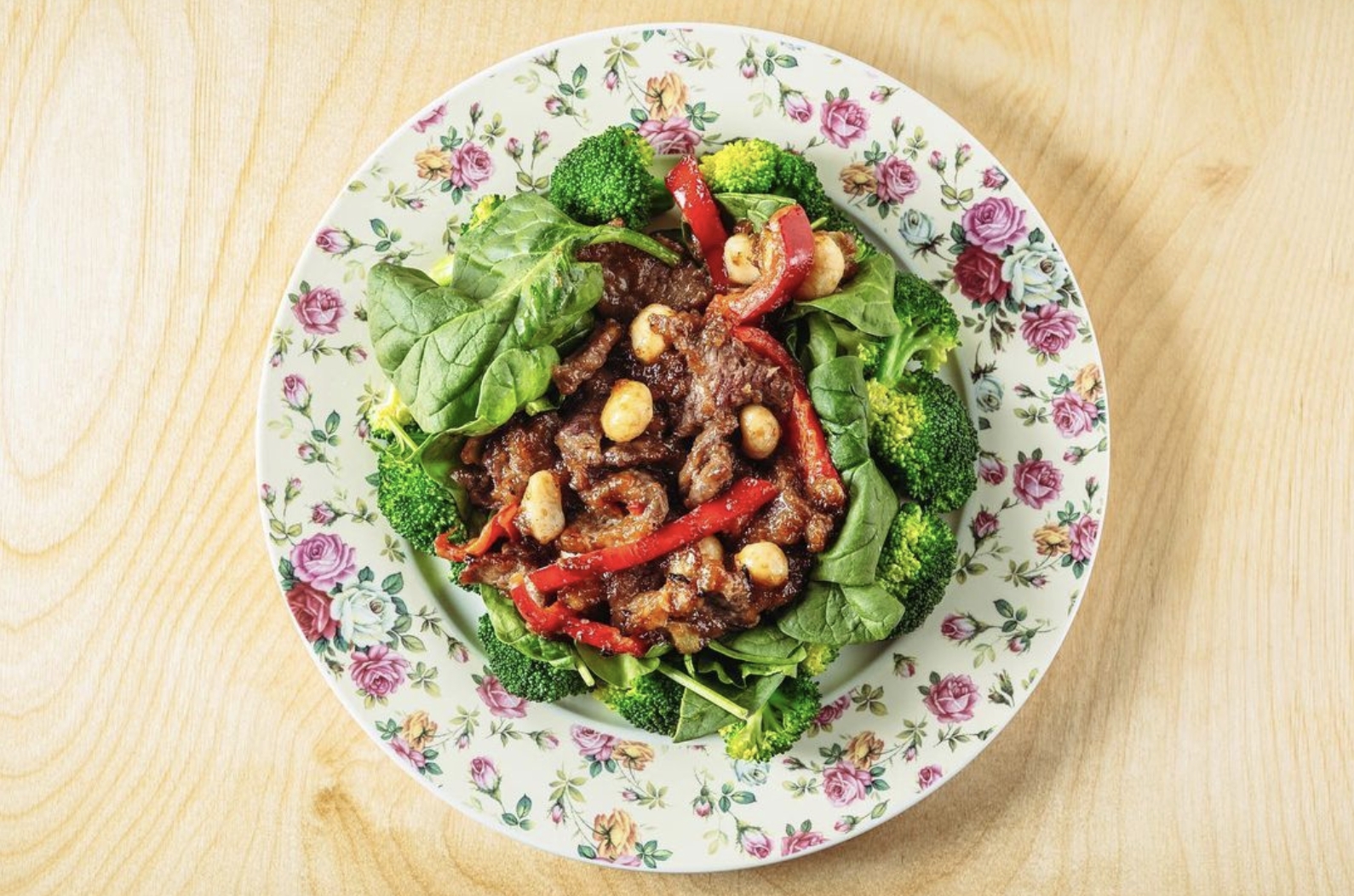When our glorious Uproxx Life leader Steve Bramucci hit me up on Slack about writing what he described as the “Rules For Dining Without Being An Asshole” (“in time for the 2022 Fall Travel Hot List!” he demanded). I was a little lukewarm on the idea, at least at first. For one thing, I never aspired to be some kind of Mr. Manners for the internet era. Or really any era. Frankly, “probably not my thing” applied on a lot of fronts.
But the more humans I’ve witnessed become feral in this post-pandemic landscape, in which many people seem to be only just now relearning how to function in a social setting (a setting that is also overwhelmingly short-staffed, which only exacerbates the problem) the more I warmed to writing the piece. I couldn’t escape the idea that maybe, just maybe, something actually needed to be said. Especially if we were about to recommend a bunch of new restaurants.
As for why I should be the one to say it, well, didn’t I just say the world is overwhelmingly short-staffed? But seriously, folks… It’s true that I have spent stints working both in restaurant kitchens and as a server (both admittedly fairly brief), so I do know a little about what I’m saying here. I have some anecdotes from which to draw. I genuinely enjoyed working in restaurants. There are times when I wish I still did, that my entire generation hadn’t been incepted almost since birth with the idea that the service industry was somehow degrading and an unsuitable place for overachievers (a sense of self inculcated in many of us in similar ways). Compared with the capriciousness of modern corporate culture, the idea of receiving compensation for providing sustenance seems gloriously straightforward.
Yes, the idea of service work in my mind probably benefits from the nostalgic glow, and from being unsullied by the realities of long hours, low pay, and dealing with annoying assholes all day. This leads me to my next bullet point in why I’m writing this: I’ve seen too many versions of this written by longtime wait staff who have arguably been in the trenches a little too long and have become, perhaps, overly jaded. I’ve read a lot of these where the “advice” can largely be boiled down to variations on “stop bothering me.” On the one hand, I get it. All jobs suck and “leave me alone” is the universal condition, right up there with “please hang out with me.” That being said, it doesn’t always add up to salient advice when people are literally paying for your service.
Hopefully, I can provide a nice mix of insider and outsider perspectives here. Suffice to say, everyone has their own unspoken Rules of Restaurant Conduct. There are many like it but this one is mine…
Don’t Just Sit Down, This Isn’t ‘Nam, There Are Rules

Thankfully, I never worked in a place where the rules of seating were unclear (is this a bar or a fast casual joint where it’s first-come, first-served? Or is it a restaurant where you check in with a host?), but I’ve seen it happen. Woof, what a nightmare. Always a painful sight to see an 18-year-old host trying to herd half drunk and increasingly hangry moms and dads back into something resembling a line.
Sadly, I don’t know that there’s any one fool-proof test for understanding what type of joint you’re in but please do give it your best shot. Look around to see if there seems to be a host stand, or if people are ordering at the bar/register. If it’s the former, check in with the dang hostess.
Don’t just sit down, you’re screwing it up! You’re screwing everything up!
Read The Menu

This writer for Food and Wine really seemed to be on one about menus. It seems… a bit much. But yes, read the menu. I don’t personally think it’s asking too much for the server to know which beers are on tap (this isn’t always on the menu and taps change), nor do I consider it a faux pas to ask the server something like “what’s good here?”
Lots of places have some dishes that they’re really good at and other dishes they keep on the menu because people order them a lot (in an ideal world there’d be no separation between these categories, but we don’t live in that world) and I don’t think it’s impolite to ask. That being said, understand that servers generally have a lot of other shit to do and people to take care of so don’t keep them too long or expect them to perform for you. One or two questions maximum, and don’t make them wait for your side conversations to end before you acknowledge them.
Be polite. Be brief. Be normal!
Substitutions

It is perfectly acceptable to ASK for substitutions — “Can I have this sandwich but with that meat, can I have this entrée but with that side,” and so forth.
It is not acceptable to ASSUME substitutions.
You’re asking the restaurant to make an exception for you. Treat it as such, and ask for it that way. As in, NOT “I’ll take this entreé with that app as my side” and whatnot.
As always, (and admittedly if this was universal I wouldn’t be writing this article) apply common sense. The busier the restaurant seems to be, with the fewer people working, the more annoying that substitution request is going to be. Not every place is In-N-Out or Starbucks, where part of their brand is having secret menus and treating every customer like a special little flower or a singularly unique lamprey.
Also, understand what a “substitution” actually is. A substitution is combining components that you see on the menu, making small alterations to dishes and ingredients that are already there, and/or omitting certain ingredients because you have a food allergy or whatever (food allergies are very real, but for the love of God don’t claim to be allergic to something you merely dislike, you ruin it for everyone).
Some requests are NOT really substitutions. This brings me to my next heading:
Don’t Just Invent A Brand New Dish And Ask The Restaurant To Prepare It

Even working as a server for the relatively brief period I did (all thankfully before “the feral era,” though it could be bad even then), I was shocked at how often this happened. Someone, usually an older woman with too much plastic surgery (sorry, it’s true) would scan the menu for a while, then sort of frown a little and ask some question in an overly casual tone that belied its bizarre nature.
“Can I just have, like, some grilled veggies or something?”
I mean… in the sense that a server can go ask the kitchen staff if they will prepare your idea for a dish, and the kitchen staff may even agree to prepare said dish, yes. But there’s also an extremely high chance that whatever you invented, conveyed to the server, which was then described to the kitchen staff second-hand and then prepared, is not going to be as good as the things on the menu that have been conceived, tested, prepped for, and practiced countless times.
I remember a specific instance of a customer inventing a dish, then saying to me, after it came out, almost conspiratorially, “…This isn’t very good.”
Yep. I hear ya, pal. That’s why it isn’t on the menu.
Sending Back Food

I know, this is a whole can of worms, and frankly I’m wary of even broaching the subject. But because this is such a frequent topic of debate, and because we’re already here, it simply must be addressed. I have friends who steadfastly refuse to send back food under any circumstances. My podcasting partner Matt Lieb, for instance, will never send any food back ever, partly because he was once dining with his dad when his dad sent back soup at the Museum of Tolerance.
I understand that some people have been so traumatized by witnessing or being associated with Nightmare Customers that they will overcorrect in order not to be one. That’s both fine and good.
…However. There are certain situations in which I would argue that it’s not only acceptable, but maybe even preferable, to send back food. If your response to a bad dish is to choke it down, leave the server a crappy tip and then vent your bile in a negative review on Yelp or TripAdvisor or whatever, you lose whatever stoic martyr points you thought you were building up by not saying anything. (*Captain Phillips Voice*) Look at me. You are the asshole now.
Hopefully, that’s an extreme situation and most people don’t need to hear that doing that is bad. But there are times when a dish is just wrong, flawed, or botched on a level that, I would argue, you should send it back. We probably need to clarify here that judging whether a dish is send-back worthy requires common sense. I’m talking about a dish that’s clearly an outlier, where the rest of the dishes are good and it’s not just a bad restaurant. And understand that it’s not Chopped and you are not Scott fucking Conant. Sending back a steak you ordered medium rare because it’s actually medium, or a broken emulsion in a sauce or something slightly underseasoned or too oniony or whatever probably doesn’t rise to the level of send-back worthy. But if you can search your soul, and know that you’re not just being a picky asshole, that they actually did fuck something up beyond recognition, and a dish is just not at all what was described and/or not really edible… yes, it’s okay, and even preferable to send it back.
IF, that is, you can do it in a non-asshole way. To wit…
- You don’t need to make a big show of saying how much the thing sucked. You’re not on trial here, people send back food all the time, so don’t be pre-defensive. Treat the server like the blameless middleman they probably are. If there’s a hair in your food (which has honestly never really bothered me unless the hair was really long or especially pube-like) it’s highly doubtful the server had anything to do with it — that’s a kitchen/expediter issue. Telling the server “Hey, sorry, this wasn’t very good,” should suffice.
- At that point, the ball is in the server’s court on how to proceed, there isn’t any way to get around that. Every once in a while, you may get one who reacts as if you’ve personally shamed them, which is… unfortunate. Please, just treat your job like a job. We could write a whole separate server-centric version of this on how not to act when someone sends something back or says an order is wrong, but suffice it to say, there’s a limit to how much you as a diner have any control over that.
- Generally, restaurants will try to make it right and either fix the thing that was bad/wrong or get you something else, for no additional charge (unless the other thing costs more, in which case you might have to, and should expect to, pay the difference). If you want something different, it’s helpful to know what that is before you send back the original thing.
- If you don’t want the dish fixed or substituted, it’s okay to ask if they’ll take it off the bill, as long as you don’t assume it. Most times they will. And when you do this, be sure to add back in the price of that comped entree to the total when you’re calculating the tip. This is an unspoken agreement between cool server (who shouldn’t question you too much or treat you badly over sending something back) and cool diner (who can chalk up one bad or botched dish to an honest mistake, and still pays everyone for their time). Tip the server (and hopefully whoever they’re tipping out to) for the work they’re doing even if it’s not reflected in the bottom line. (Yes, the economics of what servers make vs. what cooks and kitchen staff do is deeply f*cked here in the USA, but you’re not going to resolve that in one dinner, so just don’t be a dick).
To me, this is preferable to staying silent once a dish reaches a certain level of bad or botched. And if I’m the restaurant owner or manager, I’d rather comp an entrée and keep a customer than have them pay for it and leave vowing never to return, or telling their friends how much my place sucks. It’s also just good information to have. If the same dish comes back a few times, it’s probably time to 86 that dish until you can figure out what’s wrong with it. If I’m the owner or manager, I’d want to know if something isn’t up to standard. It also helps some future diner to not to get stuck with a dish they don’t want either.
Of course, in saying all of these perfectly reasonable things, there’s always the danger of empowering the most unreasonable among us. So, again, apply common sense. There is a level at which playing “fantasy restaurant owner” turns you into a scold or a snitch. Don’t go overboard! Be! Normal!
Tipping

Oh good, another can of worms. I’ll try not to get too deep into the weeds here, but I think it’s possible to acknowledge simultaneously that the incentives involved in, and the entire economics of, tipping are really not good, AND that going to restaurants makes you a participant in that system whether you like it or not. At which point welching on money service workers are counting on to live makes you a piece of shit. Tipping is part of eating out. If you’re eating out, you tip. It’s also worth noting that tips usually aren’t just for servers. They usually get shared between an entire ecosystem of service staff — bartenders, runners, bussers, etc.
For me, it’s only on the rarest occasions when I don’t give 20%. You’d have to be not only bad at the job but actively mean to me. For one thing, a bad tip punishes a bunch of people that maybe/probably didn’t have anything to do with your bad experience.
That being said I don’t think giving less than that, or having 18% instead of 20 as a benchmark necessarily makes you a scumbag. Ditto tipping less on takeout orders (I think it’s acceptable to give less than 20, but also that you should give something, though I don’t pretend to know what the ideal number is, let alone which places it should apply to).
If you regularly give 15% or less in tips, sadly, I think you are a scumbag. Don’t eat out if you can’t pay service industry folks for their work. And for tourists from other places — don’t you dare try pretending that you didn’t know tipping was a thing here. Any cursory glance at a guide book or passing familiarity with American media would’ve clued you in. We’re onto your tricks, no one’s buying that shit for a second. We already envy you for your presumably robust social safety nets, don’t make it worse.
Don’t Squat On The Table

Listen, I’d love it if we were a little more like the French and some of the other Euros when it comes to being more leisurely about meals and turning it into more of a built-in, semi-sacrosanct leisure period of the day (maybe not a lot more like them, I don’t have two hours to spend at the dinner table). But again, the service staff is working for tips. Don’t rush or get anxious about it, but if you’re looking to throw back a few and you’re not in a pub-type situation, probably pay the bill and move it to the bar. The restaurant could use that table.
When In Doubt, Be Normal
Please?
Vince Mancini is on Twitter. You can read more of his reviews here.







